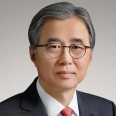In January 2021, North Korea held its 8th Congress of the Korean Workers’ Party (KWP) for the first time in five years. The Congress revised the KWP’s Rule, stating that “it would overwhelm military threats with strong military power.” The Rodong Sinmun, the official newspaper of North Korea, stated that this is a reflection of the Party’s firm position to accelerate the achievement of the “historic feat of national reunification.” It is an official pledge that North Korea will overwhelm South Korea with nuclear military forces to achieve unification under communist flag. This should not be taken lightly because the KWP Rule takes precedence over the North Korean constitution. If the South Korean government had announced that it would militarily overwhelm North Korea and achieve unification in the near future, North Korea would have called it an outright declaration of war and reacted viciously.
We often talk of “reconciliation and cooperation” when it comes to inter-Korean relations. However, to have genuine reconciliation and cooperation between the two Koreas, the North Korean regime’s aims and Chairman Kim Jong Un’s thoughts must change. There are some in South Korea who call Chairman Kim Jong Un “practical” and praise him as if he were a normal, reasonable person.
Chairman Kim Jong Un’s North Korea is a unique system that does not exist in China or Russia, let alone any other Communist country in the world. His foremost priority is strengthening the three-generation succession system, and he will do whatever necessary to this end. This was seen when he executed his uncle Jang Song-Thaek with an anti-aircraft gun and assassinated his half-brother Kim Jong-Nam with poison. US Secretary of State John Kerry called the execution of Jang Song-Thaek “grotesque, grisly, horrendous.”
North Korea claims that the ROK-US alliance, based on the ROK-US Mutual Defense Treaty, is a military threat to its security, but is this true? According to the International Institute for Strategic Studies (IISS), North Korea has the world’s fourth-largest military with 1.28 million troops and seven million reservists. North Korea also has dozens of nuclear weapons. In addition, North Korea has a military security alliance relationship with China, based on the Sino-North Korean Mutual Aid and Cooperation Friendship Treaty. North Korea is also supported by Russia. In contrast, South Korea’s ally, the United States, is on the other side of the Pacific Ocean and 28,000 US troops are stationed in South Korea. Meanwhile, North Korea’s ally, China, has over two million troops across the border. ROK-US combined military exercises, which have degenerated into computer games, are also aimed at defending South Korea from North Korean invasion, not to attack North Korea. Chairman Kim Jong Un knows this fact too well. The claim that South Korea is a military threat to North Korea does not make sense and is a baseless claim to force the withdrawal of US troops from South Korea.
The Economist’s Democracy Index ranks South Korea 23rd out of 167 countries, while North Korea is ranked last at 167th. According to the World Bank’s 2019 Gross Domestic Product (GDP) data, South Korea ranked 12th, while North Korea was one of 10 countries that ranked outside 203rd. North Koreans living in the world’s poorest and politically repressive country are to be disillusioned with the regime. This is why Chairman Kim Jong Un sees the very existence of politically free and economically affluent South Korea as a political threat to his power. If North Korea sees South Korea as a political threat, it is because of its own wrong choice, not South Korea’s fault. It can be resolved only when North Korea and Kim Jung Un change.
South Korea’s existence itself is a political threat to Kim Jong Un, so eliminating South Korea is an absolute imperative. This is also why North Korea seeks cooperation with illiberal countries such as China and Russia. North Korea is trying to gain their support by emphasizing its importance as a vanguard against liberal democracies; South Korea, the United States, and Japan. It is in this context that Kim Jong Un’s remarks at the 8th KWP Congress can be understood when he called for strengthening “historically rooted” bilateral relations with China and Russia. His goal is to remove South Korea from the map through unification by military force.
Until Chairman Kim Jong Un changes his mind, we should not be misled by the political rhetoric of “reconciliation and cooperation.” We must aim to prevent war by reducing the risk of his misjudgment. To defend South Korea’s metropolitan areas exposed to North Korea’s nuclear missile threats, additional defense missiles should be deployed. Moreover, this is not the time to think of the transfer of wartime operational control. Ever since the ROK-US Annual Security Consultative Meeting in 1978, for the past 40 years, South Korea has tenaciously demanded that the United States clearly guarantee nuclear umbrella. Yet South Korea has declared not to take part in the US-led missile defense system. South Korea must disown this shameful contradiction.
Although the overall situation seems difficult, many problems can be solved if China and Russia could persuade North Korea to transfer its excessive military spending, which is about 24% of its GDP, to the welfare of its people and to open up its system to the level of China. In order to make China or Russia persuade Chairman Kim Jung Un, South Korea better exerts diplomatic efforts.
Even before Chairman Kim Jong Un changes his mind, we must continue to engage in dialogue with North Korea and, if necessary, even try to mollify him. However, South Korea must not hollow out the ROK-US combined military exercise because of North Korea’s opposition. To protect itself from North Korea’s nuclear missile, South Korea should not delay the deployment of additional missile defense system because of the rejection of China, North Korea’s ally.
* The view expressed herein does not necessarily reflect the views of the Asan Institute for Policy Studies.

 Facebook
Facebook Twitter
Twitter